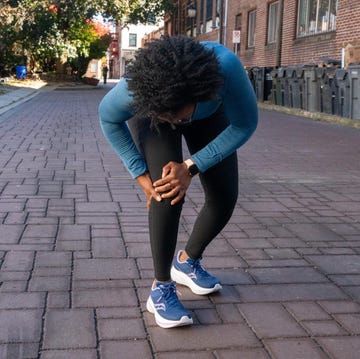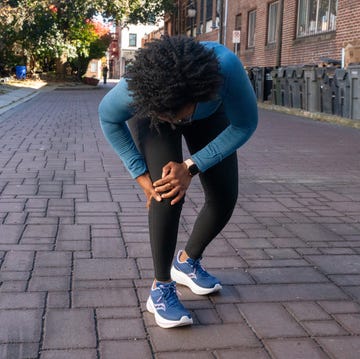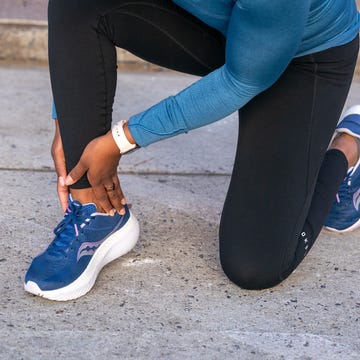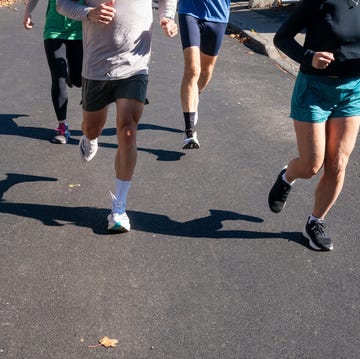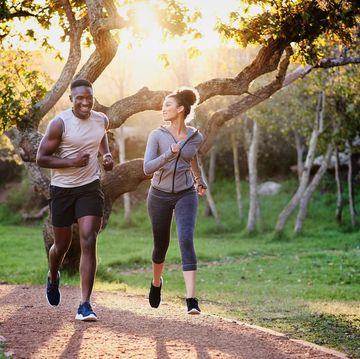A reader asks: I’m a 22-year-old who began running about a year-and-a-half ago. Since the day I started running I’ve lost 22 pounds (I’m 5′8″). When I started running, I also decided to eat healthier, so it’s been over a year that I’ve been eating a balanced diet. Recently, I had some tests in Peru (where I am originally from) because I haven’t had my period since January. The results showed a good level of hemoglobin (13), and overall good levels of other hormones except for progesterone. The doctor told me to take vitamin E and pro-natal Supradyn. He also suggested that I augment my fat intake, but said that overall there was nothing to worry about. What do you think? Has it been too long? What else should I do? My mom is very worried and she thinks I should gain weight to get my period back. What can you tell me about my situation? Thank you.
This is a great question: It has implications for a lot of young women because it affects health in the long term. The 22-pound weight loss may be good for you or it could be a problem. I guess the first question I would ask is, “What was your weight before you stared running?” At 68 inches, I would expect you to weight about 140 pounds. If you lost weight to that level, the weight loss should be good. If you dropped from that level, that could explain your loss of menses and have future health implications. You can calculate your current body mass index using this online BMI calculator. If it is in the 17–19 range or below, you may have dropped your weight too low for your health and you may need to regain some weight.
The loss of menstrual cycles is not a good sign in young women. The most common cause is pregnancy, but that does not seem to be the case for you. In the face of weight loss, a loss of periods often indicates that your body’s energy stores are inadequate to support your menstrual cycles. The body will shut down menstruation in times of starvation to protect the system. This is a critical time for your bone development as you should still be adding to your bone mineral density. The loss of the hormones associated with your cycles can reduce your potential peak bone mineral mass, leading to problems as you get older.
Energy balance is the key for you to support both your running and your periods. You need to consume enough calories to support all your body functions, including your periods, and your daily physical activity, including your running. So your mother is correct, although you may not have to regain all the weight. You should cut back your mileage and increase your calorie intake (still from healthy choices) until your periods restart. When you find the level that will maintain your menstrual cycles, you can then work to maintain that weight and energy balance by increasing your calories as you increase your mileage. If this does not work, you should see your physician again.
A detailed summary of menstrual function, weight loss, bone density, physical activity, and energy balance can be found here.

